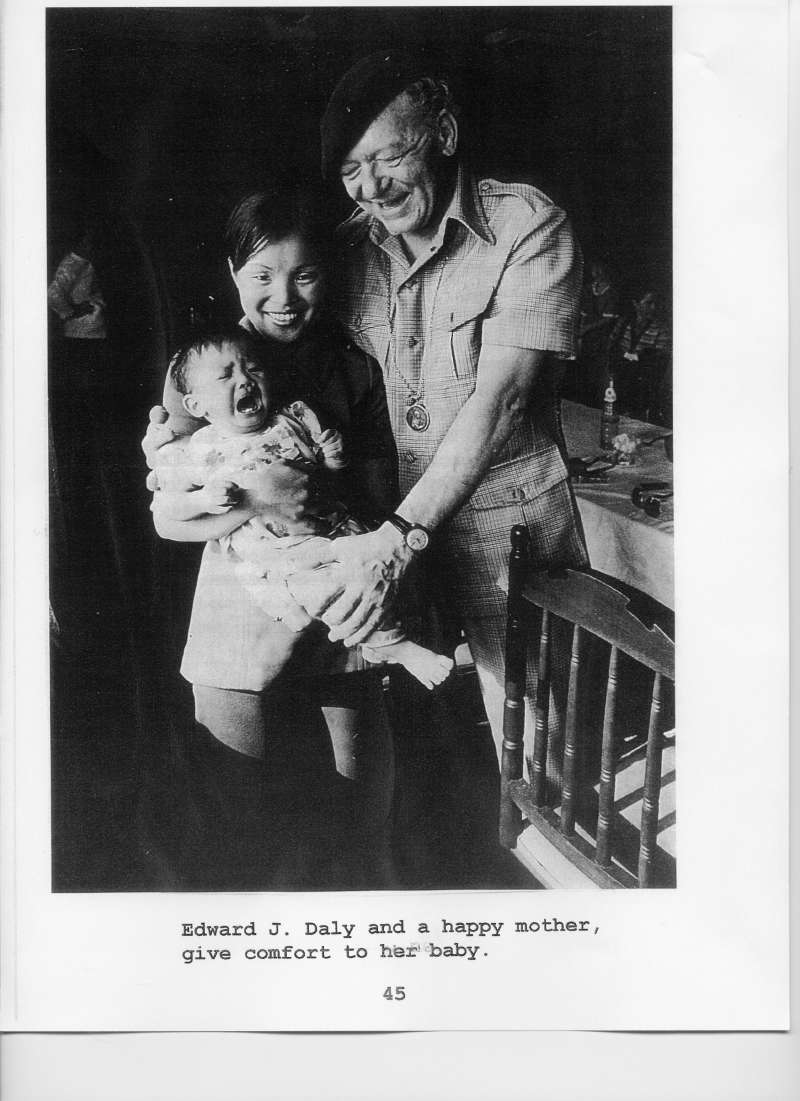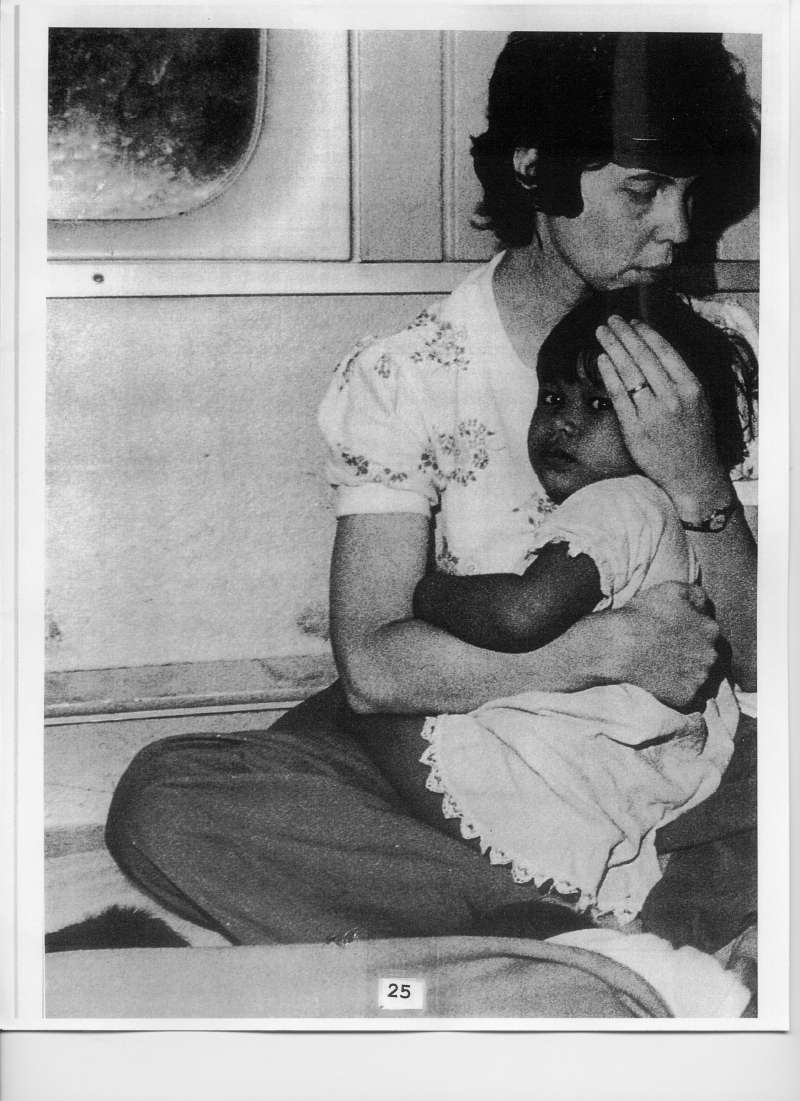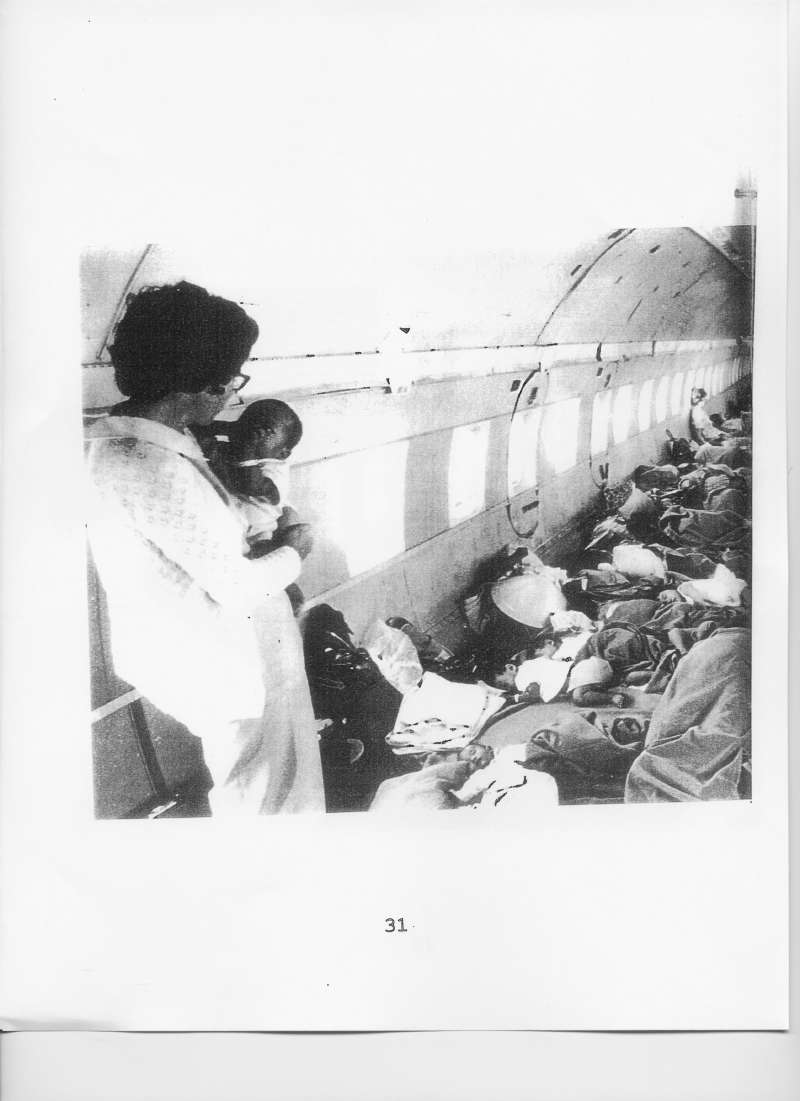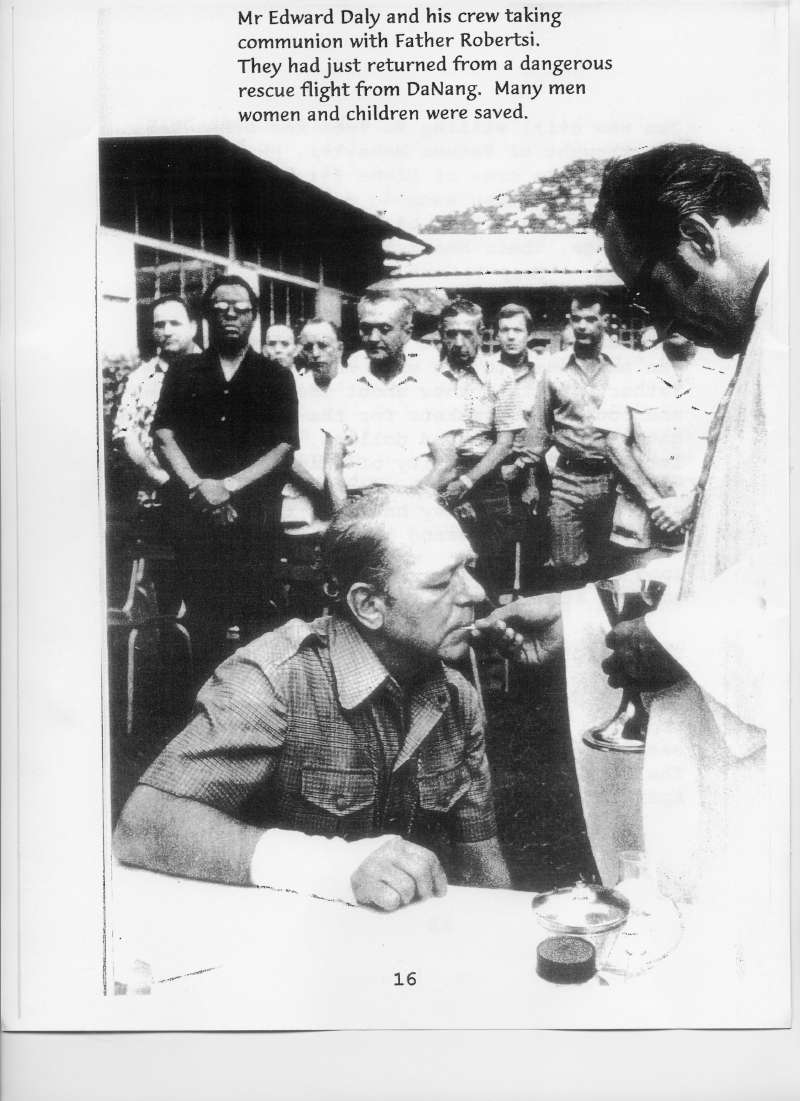"FLYING PLAYPENS "
- The History of World Airways in Southeast Asia -
1956-1975
Written by Patricia Johnson
Mulder
ABOUT THE AUTHOR
Patricia Johnson Mulder, is a graduate
ofCal State Hayward University. She is the founder of Stop and
Read, a non-profit association in the city of San Leandro
California. Patricia writes books; is a motivational speaker,
a former Substitute Teacher, who enjoys sharing her
experiences with children, adults and seniors through
workshops. Patricia is also a Certified Nurses Assistant,
which enables her to spend her spare rime helping people with
their medical needs. Her plans include becoming a Registered
Nurse. Patricia has written numerous short stories. Her
published short story, "A Question of Manners," describes a
homeless man's desire to live better. Her talented abilities
can also be seen in her prize winning short story, "Two People
On A Porch," which shows the compassionate aspect of growing
old, as well as love and faith between two people. Patricia's
books include "Railroad to Friendship"; "The Substitute
Teacher" "Stop and Read Activity Book." including Teacher's
Guide; "Jet Stream"; "Children's Travel Log,"; "How To Become
A Real Teenager."; and "The Care Provider. Patricia has
enjoyed writing, "The Eyes of A Child." Patricia has a
personal goal of building self-esteem in children and adults
through her books." Patricia contributes her love of writing
to her family and friends who always encourage her to continue
the "dream of sharing good books with ideas from within her
heart and mind."
It was Easter Sunday in 1975, and life for
Charlotte Behrendt became a series of events because of one
phone call. Charlotte, twenty-eight year old, only
daughter of Edward J. Daly, listened to the anxious voice of
Maria Eitz. Maria, sounded alarmed and worried about the orphans
in her care. Maria, a dedicated organizer of the Friends For All
Children, an orphanage in Boulder Colorado, expressed to
Charlotte her fears about the orphaned children in Saigon.
DaNang had recently fallen to the Vietcong. Maria asked
Charlotte for help in getting the orphans out of this now very
dangerous place. There were over five hundred and fifty children
in this orphanage. Maria and parents waiting in the United
States for the children, felt that they were in danger of being
killed by the conquering forces. A few weeks earlier, Ed Daly
had sent the World Airways planes in to give supplies to the
orphanage. Now, more help was needed. Maria asked
Charlotte if she could do anything to get the orphans out of
South Vietnam and to safety in the United States. Charlotte told
Maria to stay on the line, while she placed a Trans-Pacific
phone call to her father. Edward J. Daly answered. As Maria,
Charlotte and Daly talked, hope for rescuing the orphans became
a reality. Daly was already in Saigon, working on other missions
involving getting rice to hungry people in Phonom Penh. Daly did
not hesitate a moment. Every minute counted. As soon
as he hung up the telephone, Daly began to make plans for the
rescue. On March 27th, Daly had already cabled President
Ford and Secretary of State, Henry Kissinger. His message was
urgent. "A human slaughter of massive proportions is imminent,"
in Cambodia and South Vietnam. Daly never received a message
back from his cable. Therefore, he decided to take on the
responsibility of helping save hundreds of lives. It did not
matter to Daly how much it would cost to save the children. Daly
had been a busy man. He had a previous charter commitment
in Oakland, which gave him only two days to assemble a flight
crew, food medicines, and anything else necessary for a
successful, safe operation. Apparently, the government
seemed nervous about his undertaking, but it did not make Daly
lose his focus. He wanted to help the orphans. Daly
checked his schedule log for available pilots. He wanted
to handle this emergency quickly and professionally for the
safety of the orphans and his crew. Daly pulled one of his
planes off the Rice Lift in Cambodia. Captain Bill Keating
flew to Phonom Penh the morning of April 2, unloaded his
forty-five tons of rice, and was back in Saigon before noon.
It was then that Captain Keating and Captain Kenneth Healy
(pictured below) discovered that they were assigned to fly five
hundred and fifty orphans to the United States.

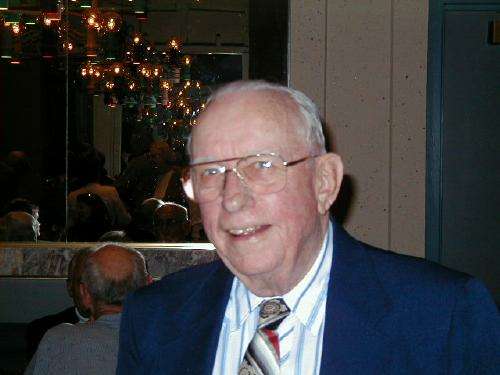
They would not be alone on this flight.
Volunteers were willing to help. On this flight, were four
doctors, seventeen European, American and Australian nurses,
from the orphanage who wanted to accompany the children to
safety. As Daly sat in his hotel room, used now as his office,
he counted the hundreds of dollars bills that lay on the desk in
front of him. Rescuing people had become a part of his
life and he enjoyed the planning process. Daly had already
instructed his pilots and on many occasions flown with them to
rescue men, women and children refugees from DaNang. In fact,
from March 24 through March 26, 1975, World Airways rescued over
1000 refugees from DaNang to Saigon and Na Trang, using three
727 aircraft under a sub contract with Air Vietnam, who then
terminated the contract, as they felt that DaNang was too far
out of control. On the 27th, flights were then made for USAID,
for one day. On the 28th Daly spent the day urging both
Vietnamese and United States government officials to some how
affect an acceptable crowd control at DaNang, and he would
continue to fly out refugees on his own. (A detachment of United
States Marines was suggested - and laughed at,) Talks continued
until past midnight, when Daly and Healy, unsuccessful in their
quest, went back to their hotel to get some sleep. At five
a.m..., Daly called Healy's room and said, "I don't care if the
__ will help or not. If you will fly to DaNang with me, we
will move more refugees on our own." Healy said, "Sure." So they
went to work. Three crews were alerted, so as to use all three
727 aircraft. It was decided to operate the flights 30
minutes apart so that only one plane would be on the ground at
DaNang at a time. Daly and Healy took the first one.
Captain Don McDaniel the 2nd, and Captain Dave Wainio the 3rd.
This flight was on March 29, 1975. On arrival at DaNang, all
looked calm, and the control tower advised that everything was
under control. Upon landing, all hell broke loose, and
Healy immediately radioed the other two aircraft to turn around.
At that time many refugees did everything to board the last
plane out of DaNang. There were soldiers running behind the 727
as it taxied slowly down the runway, trying to get aboard.
Some even ran up the rear stairs, into the cargo
compartments and wheel wells. World Airways made a daring escape
with a plane severely damaged by hand grenades, thrown by
soldiers in an attempt to stop the plane. The crowd was out of
control so Daly told Captain Healy to take off. The plane was
overloaded by 20,000 pounds. There were 360 people aboard a
plane which is designed to carry 105. The baggage compartments
were loaded with people. Some of the problems during the
flight included, the rear stairway remained partially extended
for the entire flight and the main wheels would not retract, and
the lower cargo doors were open. The plane had to fly at
10,000 feet because of lack of pressurization. Fuel
consumption was three times greater than normal.
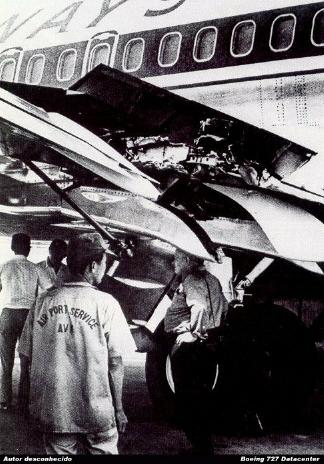
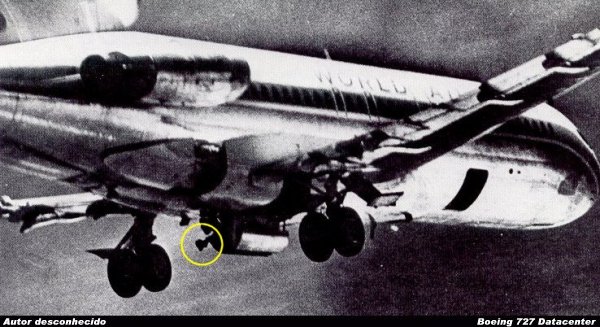
When they finally landed at Saigon the fuel
tanks were almost empty. This flight was later referred to by
CBS News as "The return flight from hell." Now, Daly had another
rescue to prepare for. He looked at Jan Wollett, standing near
his desk, waiting for instructions. Jan saw her boss
counting the money to help buy supplies. Jan, a flight attendant
was also scheduled to take part in the rescue of the orphans.
She smiled as she took the money from Daly. She was
sent to buy supplies needed for the flight. It was about
8:30 a.m.. Wednesday morning of the flight. Jan searched
Saigon for pens to secure the orphans during the flight.
Unfortunately, Jan was met with coldness and uncooperative
people. No one wanted to help her buy supplies. The
blankets, milk, baby food and food were essentials to keep the
children comfortable. Most disappointing of all, was when the
Red Cross refused to supply anything. They had been
advised by the U.S. Embassy that Daly's plan to fly orphans, was
a hazard. So Red Cross officials stayed out of the
evacuation plans completely. These officials did not understand
the importance of saving the children. The clock was ticking
away without even a handful of supplies for the orphans. Jan was
still willing to look for other help. She thought of Father
Roberts!, who had said Mass for the crew of Plane 691, on Easter
Sunday after they escaped on the last flight out of DaNang.
With his prayers and kind blessings, their hearts and
minds were more at ease. They looked forward to more challenges
that involved helping people. Jan was happy to meet Father
Roberts! again. Jan explained to him what she needed. Father
Roberts!, knew about the black market and could get blankets for
the children. Jan gave him five hundred dollars, and he
quickly left for the inner city of Saigon. Later, Jan was told
by some of the doctors and nurses that the U.S. Embassy had just
received a delivery of a thousand cases of baby food. "Food for
the children. Thank you." Jan thought, as she located a
telephone. She telephoned the Embassy. It was almost noon.
No one there would help her. The cases of baby food would
never reach the orphans. An invisible cloud of despair
seemed to fill the afternoon air. The flight was to depart at
3:30 p.m. on April 2nd, Saigon time and date. 15 Jan tried one
last place. She telephoned Foremost Milk Company in Saigon.
They agreed to help. After a few hours, they
appeared at Ton Son Nhut with four hundred quarts of milk, which
they donated to the orphans. Jan was extremely happy when she
saw the milk. Her efforts had been rewarded. "I only buy
Foremost Milk now," Jan said later, during an interview with
reporters. Soon after, the milk was aboard the plane, Father
Roberts! arrived at the gates of the airfield, with blankets he
purchased. But, he was refused entry. The officials on
duty at the gates gave no explanation to Father Roberts!. Father
Roberts! was very disappointed that his treasure went unnoticed
by the officials. But, he knew that World Airways crew
understood, when they saw him walk away with his arms full of
blankets. The crew now had to focus on the aircraft. Kenneth
Healy and Bill Keating spent the rest of the day getting the
plane ready for flight. In spite of being assigned to a plane
with no seats, the crew was able to create a safe, comfortable
interior. Cargo pallets were locked to the floor. Then
mattresses and blankets were put down; crew wrapped netting
around it and fastened this to the pallets. It was finished off
by adding blankets and pillows on top which were also fastened
securely. The bassinets were tied to the cargo netting. For the
older children, they could crawl and hold on to the strong
netting. The idea of a huge padded playpen, would make the long
flight more comfortable than having seats. The overhead
compartments had been removed. To replace the fact that there
were no oxygen masks to use in case of emergency, thirty to
forty portable bottled oxygen tanks, were obtained and tied to
the side of the plane. The four laboratories were located, two
in front and two in back. Jan was very happy that at least
some of the supplies were ready to go. She discovered another
hero during the rush to prepare everything for the orphans. Ken
Kaizer, station manager for the Flying Tigers, and a colonel in
the U.S. military were both able to ask the commissary for soft
drinks, baby food, fruit, cookies, medical supplies and other
edibles, to be delivered to the aircraft. Time was running
out. At around 1:00 p.m., Daly and Margaret Moses, deputy
director of Friends For All Children, and her assistants,
arrived at Tan Son Nhut, with sirens and Vietnamese police. The
exit visas were approved. All was going well until
Margaret received a phone call warning her that the plane was
unfit. With her two companions, Margaret examined the
airplane and her two companions agreed that the plane was unfit.
Margaret was out voted. Margaret was still willing to go, but
she never flew on World Airways flight. When Daly located the
source of the warning, which was from USAID, who had determined
that the flight be stopped, he understood that they really did
not know the facts. "If they could only see the airplane, they
would realize that it was fit." Daly said. There were thirty-one
adults and three doctors to handle the five hundred and fifty
orphans. But, the USAID still insisted that the plane was
"antiquated and unsafe." USAID did not have time to come out and
inspect the airplane. Jan felt that, "The USAID and orphanage
officials do not understand the way the cargo plane is set up
with pallets, blankets and everything. It is perfectly
safe. There is 1 adult for every 10 children. We can
more than evacuate them in this emergency." The orphans would be
very well protected in World Airways plane.
(click on picture to enlarge)
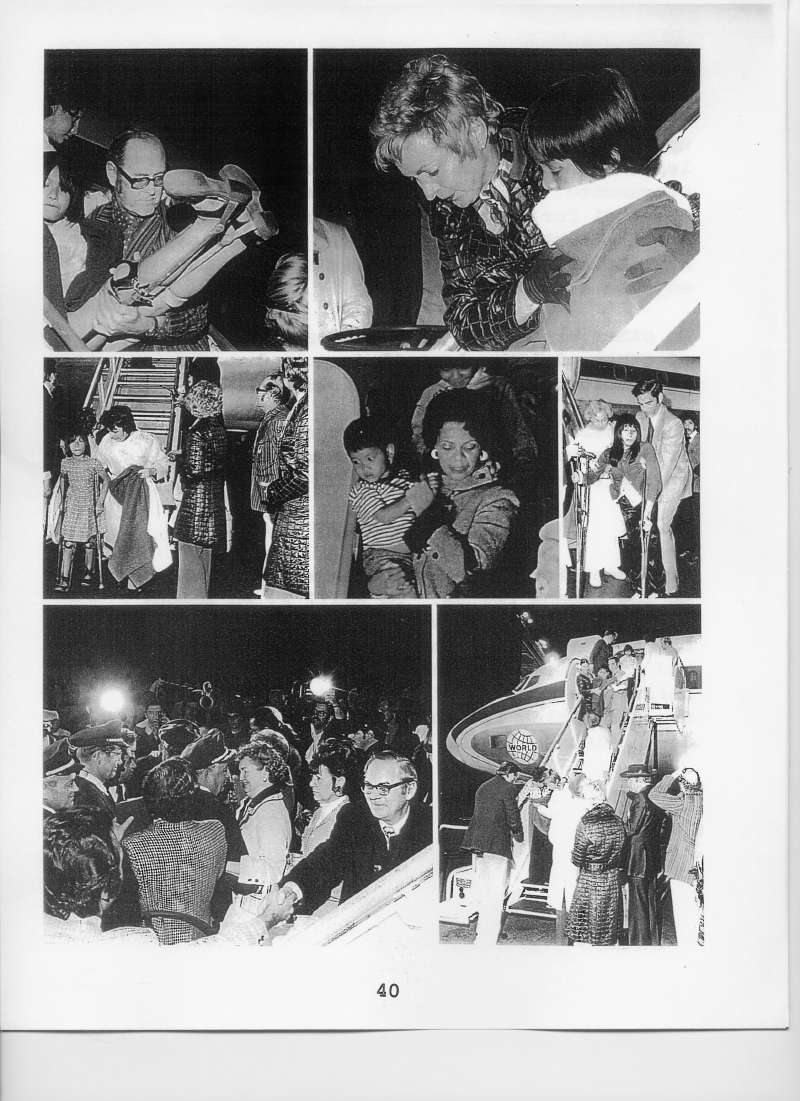
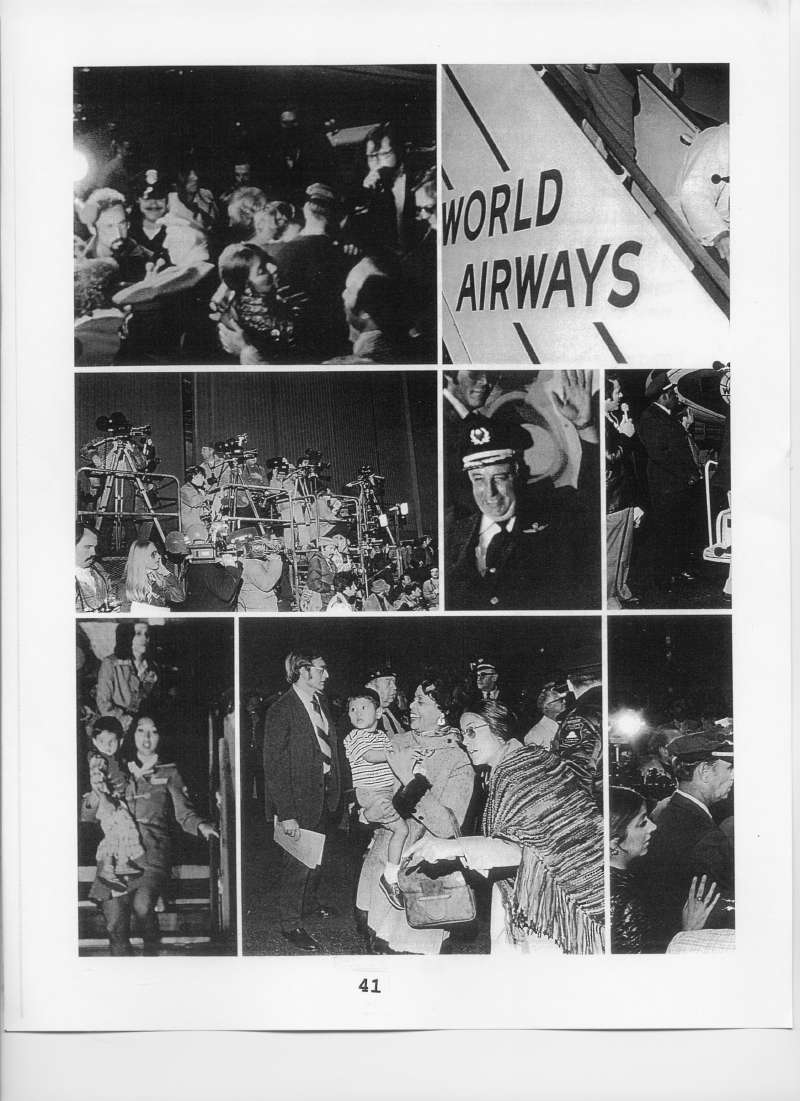
The final result of this delay, ended by World not
flying out the five hundred and fifty orphans afterall. (At
least not at this time.) The World Airways crew were all
extremely disappointed. But, Daly had the desire to find
more orphans to take out of Saigon. Daly telephoned Mary Fisher,
whose husband was in Saigon as the pastor of the Seventh Day
Adventist Church. Daly told Mary that he needed babies and
nurses. Mary was elated. She knew of six babies in the
Seventh Day Adventist Orphanage who had been adopted and had
papers to prove it. They just needed transportation to the
United States. Mary even had Myma Fisher, a nurse, who was
her husband's niece. As the miracles continued, Mrs Fisher,
along with four girls and two boys, ranging from ages two to
fourteen months old, arrived at the airport. The eyes of
the children were bright with anticipation. And then from
nowhere a young girl appeared and asked one of the crew. "Are
you flying orphans to the United States?" "Yes." A flight
attendant said, smiling. "Do you have room for more?" she asked,
looking hopeful. "Hell, Yes? Get them here." Daly said, with
happiness in his voice when he overheard he conversation.
Daly went with the young girl to the home of Mr. and Mrs Clark.
Tom and Sharon Clark were co-directors of Friends of Children of
Vietnam. At 7:30 p.m. Daly knocked on their door» Daly
assured them that if they could get the children from their
orphanage in an hour, they were flying to the United States. The
excited couple drove twenty miles outside of Saigon to pick up
the children. Daly went back to the airfield and waited
for them to return. In the meantime, he inquired about the
length of time it took to get exit visas. Only five orphans had
all their travel papers in order. Daly's determined
attitude and inquiry, prompted the South Vietnamese officer to
make a telephone call. Soon after permits were delivered
to the gate. At 8:50 p.m. the World Airways crew and their
compassionate leader Edward J. Daly, were all ready to go.
But, no orphans arrived. The crew waited patiently. The
sky began to darken. The wind was still. All eyes were
watching the entrance to the airport. Then the telephone
rang. It was the South Vietnam ordering Daly to leave. The
airport was on full alert. It was ordered that all nonmilitary
personnel had to leave to prevent sabotage by infiltrators who
might pose as airport workers or other disguise. All seemed
hopeless as night approached, when the crew saw headlights
beaming toward them. The minibuses carrying fifty-eight orphans,
Dr.& Mrs. Hildebrand, who was also a doctor, two other
doctors and several nurses. They had their orphans. It was
time to go. Dr. Hildebrand unloaded the minibuses quickly, and
went straight to the gate. It was a blessed moment when the
officials helped the group on to the plane without checking
names. But, the uncertainty wasn't over yet. The
South Vietnamese Immigration officers boarded the plane, and
began throwing people off. Jan watched as they separated a
eleven-year old boy from his three-year-old brother. Then two
others were thrown off. The crew was desperate to do something.
The officials tried to separate a mother and her infant child.
Several times the mother was pushed out of the door of the
airplane, with her child in her arms. Within moments the
mother rushed onto the plane with her baby crying in her arms.
The voices outside grew louder, and the mother was frightened.
This time she tried to hand her baby to Captain Healy, who was
aware of her desperate need to at least save her baby. Healy
looked into the eyes of the mother and at the baby bundled up
carefully in a warm blanket. Within seconds the woman and her
baby disappeared. The officials did not miss her. Later in
flight, when the devoted mother and her child were found in the
crew lavatory, Healy had only one thing to say about what might
have happened, when a flight attendant discovered this mother
quietly holding her baby. (See picture of mother and baby page
45) "I have no idea, how they got there," Healy said, with a
small smile. After an hour of this very tense situation
involving who would stay on the plane ended. The doors finally
closed. Pilots Keating and Healy secured the cockpit for
takeoff. They checked all the instruments and buckled their seat
belts. The plane waited for clearance from the tower.
Suddenly, the lights were fumed off on the runway.
The tower went off the air. The pilots could see activity
ahead of them at the far end of the airport. The Vietcong
appeared to be taking over the airport. Captain Healy and
Captain Keating started the engines and pulled onto the runway.
They knew that it was time to start moving the airplane.
They moved slowly down the runway. In the last moments before
takeoff, the tower came alive with an announcement. "You're not
cleared for takeoff. Stop? Stop? But, the World Airways
DC-8, was airborne. Healy and Keating were not going to stop
their airplane. The precious orphans, crew and passengers
depended on them to fly them to safety. The pilots stared out
their cockpit window into the vast black sky. A few stars dotted
the sky as they continued to fly the airplane toward Freedom.
Later, Captain Healy had a comment about the message from the
tower. He some how neglected to press the microphone button when
attempting to respond to the tower. This resulted in
"communication failure." Healy said, when asked by the news
media.
(click
on photo to enlarge)
One morning
Captain Healy was in his office? at World Airways in
Oakland. A young man entered. He stood in front of his
desk, and asked Healy a question. Their eyes met. "Do you
remember me? he asked. Captain Healy. "No." Healy said,
shaking his head. "I am one of the orphans on your flight.
You saved me and many others. I am here to say
Thank you." Captain Healy stood up and shook the hand of
this young man who knew him. Healy remembered the many
orphans who survived a terrible situation because of the
aviation discovery of airplanes. He turned his
attention back to his visitor. "You are welcomed. Would you
like a cup of coffee." Healy said, smiling. "Yes. Thank
you." For an hour, the two of them talked about how freedom
had changed the young man's life. Long after the young man
left. Captain Healy knew that saving this young man and
others like him, was worth the danger. Healy sat down in his
chair. He wondered if he would ever do it again.
It took just a second for him to think about it. Yes,
if the need was there, I would do it all over again, if I
were still flying airplanes today.
Captain
Kenneth W. Healy is now retired and lives in California.
PEACHTREE
CITY, Ga., June 12 /PRNewswire/ -- A World Airways plane
today departed Atlanta's Hartsfield-Jackson International
Airport bound for Vietnam as part of a historic trip
commemorating the 30-year anniversary of "Operation
Babylift." World Airways, a wholly owned subsidiary of
World Air Holdings, Inc. (Nasdaq: WLDA), is returning 21
Vietnamese adoptees to Ho Chi Minh City for a special
two-day visit where they will tour the city and will be
honored at a special banquet in the Unification Palace.
Thirty
years ago, World Airways airlifted 57 orphans from Saigon
and brought them to the United States to be adopted by
American families. World Airways contacted 21 of those
children, now adults, and invited them for this special
trip aboard one of World's modern MD-11 wide-body
passenger aircraft, specially painted with the company's
former red and white design and logo from 1975. Several of
the invited adoptees were on that historic World flight on
April 2, 1975.
That flight
to California led to an even larger Operation Babylift
effort by the U.S. government throughout the month of
April 1975, transporting more than 3,000 children.
"After two
years of planning, we are finally on our way for what will
be the second journey of a lifetime for many of these
individuals," said Randy Martinez, chief executive officer
of World Air Holdings, Inc. "It's an honor to help make
this trip happen, and the two days we will spend in Ho Chi
Minh City will truly be memorable."
Joining the
adoptees and Martinez on the trip are several invited
guests, several of whom participated in the original
Operation Babylift. World Airways pilots Ken Healy and
Bill Keating, who flew the original flight out of Saigon
under dangerous conditions, and other members of the
original crew and several ground support employees are
taking part in the special trip. They will be joined by
Ross Meador, who placed the 57 children on the 1975 flight
from an orphanage he managed for Friends of the Children
of Vietnam (FCVN).
After
departing Atlanta, the commemorative flight will stop at
World Airways' former headquarters city, Oakland, Calif.
before heading on to Ho Chi Minh City. In Ho Chi Minh
City, the adoptees and invited guests will participate in
an arrival ceremony at the airport, tours of the city
(including the Phu My orphanage) and a gala dinner at the
Unification Palace. The group will return to San Francisco
on July 17, before finishing the journey back to Atlanta
later that day.
About World
Airways
World
Airways, a wholly owned subsidiary of World Air Holdings,
Inc. (Nasdaq: WLDA), is a U.S.-certificated air carrier
providing customized transportation services for major
international cargo and passenger carriers, the United
States military, and international leisure tour operators.
Founded in 1948, World operates a fleet of 17 wide-body
aircraft to meet the specialized needs of its customers.
SOURCE
World Air Holdings, Inc.
PEACHTREE
CITY, Ga., June 1 /PRNewswire-FirstCall/ -- World
Airways has unveiled a specially painted MD-11 wide-body
jet that will fly a group of former Vietnamese orphans
back to their homeland to commemorate the company's
dramatic "Operation Babylift" flight 30 years ago. The
modern plane has been painted to resemble the livery of
the World Airways DC-8 cargo plane that launched
Operation Babylift by flying 57 Vietnamese orphans to
the United States at the end of the war in Vietnam.
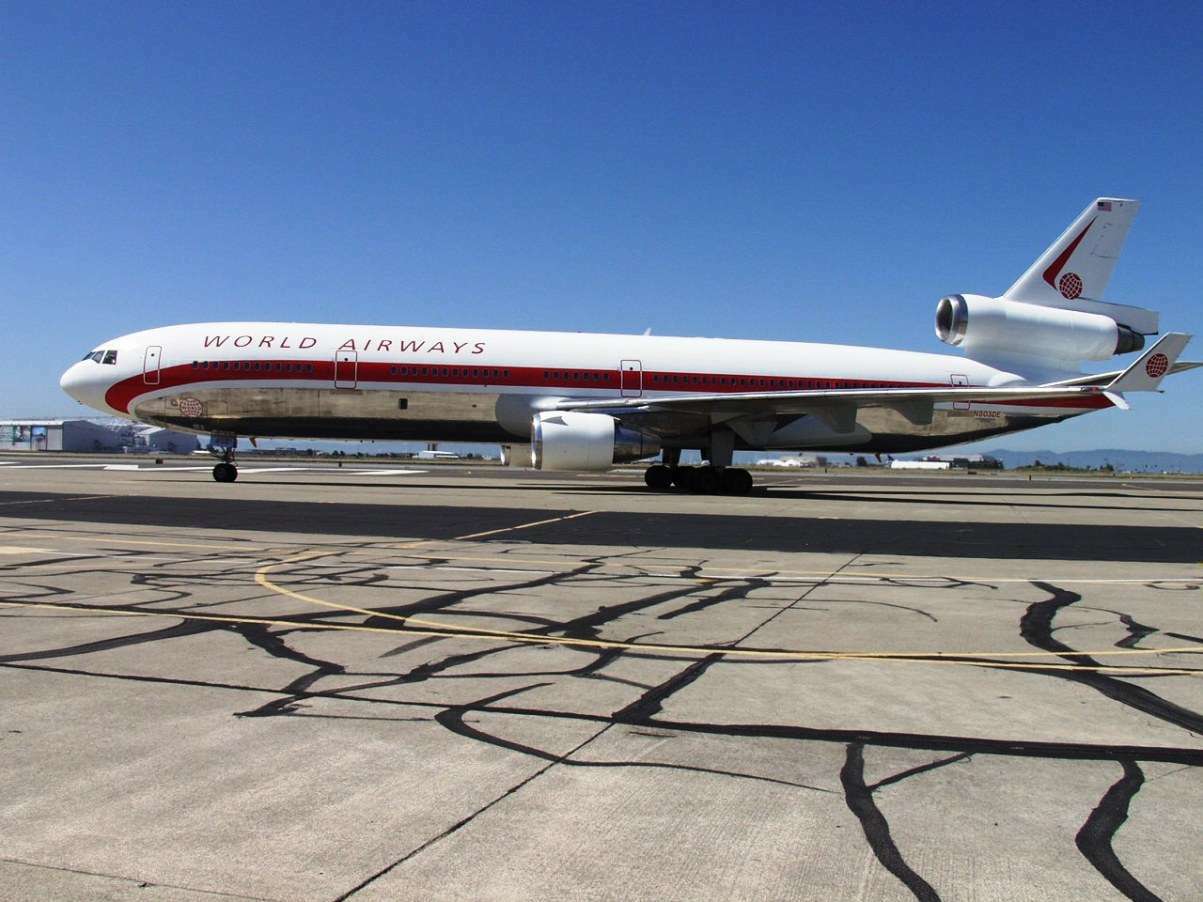
(click on picture to enlarge)
The 1975
World Airways flight, which took off against the wishes
of government authorities, triggered a national effort
during the entire month of April 1975 that ultimately
brought more than 3,000 orphans to families in the
United States. The commemorative trip has been named
"Operation Babylift - Homeward Bound," in honor of the
airline's heroic efforts of 1975.
"Painting
the plane is an important and visible way to commemorate
the original Operation Babylift flight and acknowledge
the legacy of World Airways," said Randy Martinez, chief
executive officer of World Air Holdings. "It will be a
magnificent sight when the plane lands in Ho Chi Minh
City, and we are proud to sponsor this historic event.
For many of the 20 former orphans, this will be their
first return to Vietnam."
The
flight will depart from Atlanta on June 12, 2005, for a
two-day visit in Ho Chi Minh City, culminating with a
special dinner at the Unification Palace. The guests
will tour the city, cruise on the Saigon River and visit
an orphanage to present gifts.
Some of
World's former pilots, flight attendants and ground
staff involved in the original flight with
then-president Ed Daly in 1975 also will be guests on
the commemorative trip.
World
Airways, a wholly owned subsidiary of World Air
Holdings, Inc., (Nasdaq: WLDA), is a U.S.-certificated
air carrier providing customized transportation services
for major international cargo and passenger carriers,
the United States military, and international leisure
tour operators. Founded in 1948, World operates a fleet
of 17 wide-body aircraft to meet the specialized needs
of its customers. For information, visit
www.worldairways.com .
SOURCE
World Airways, Inc.
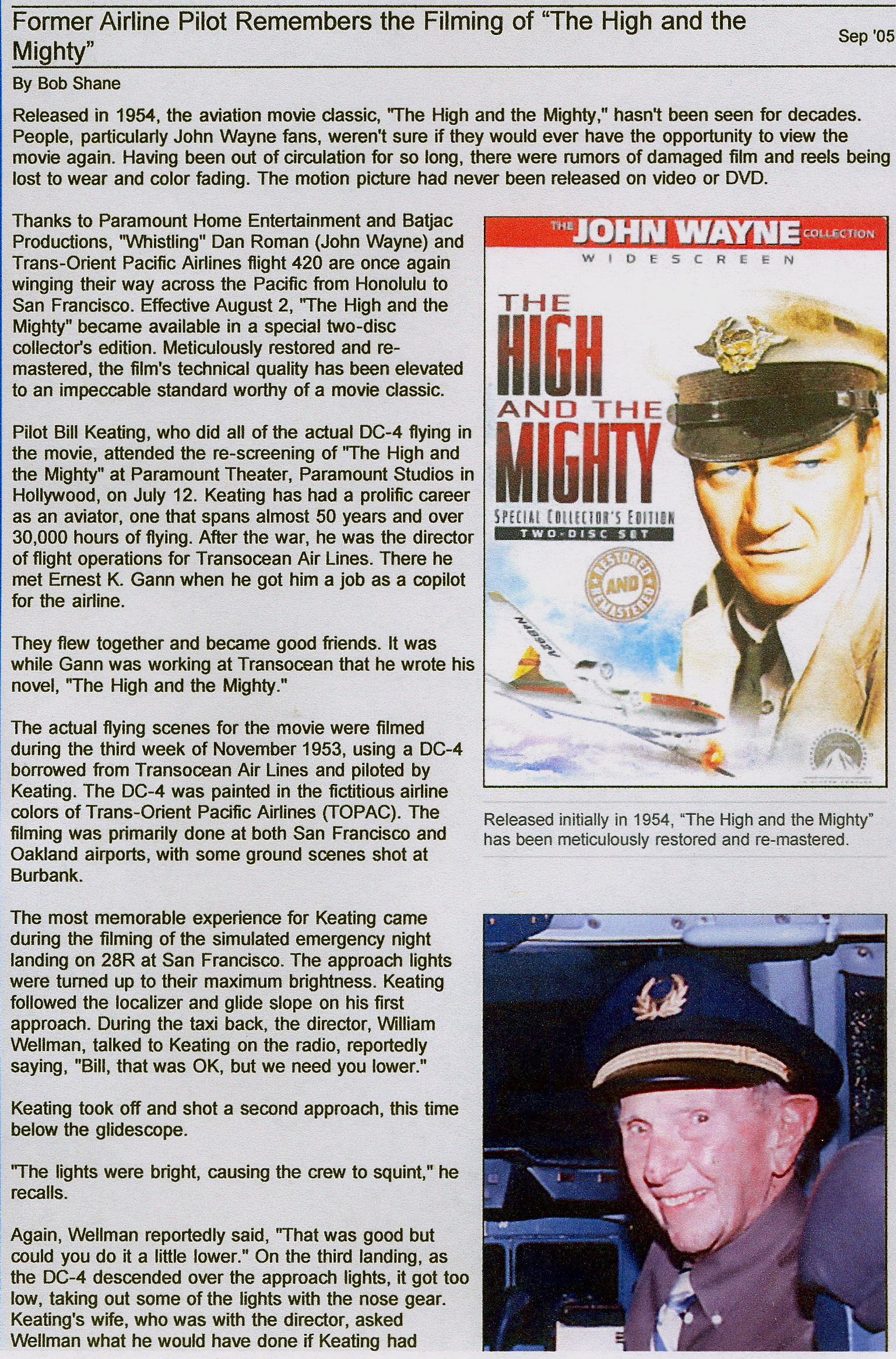
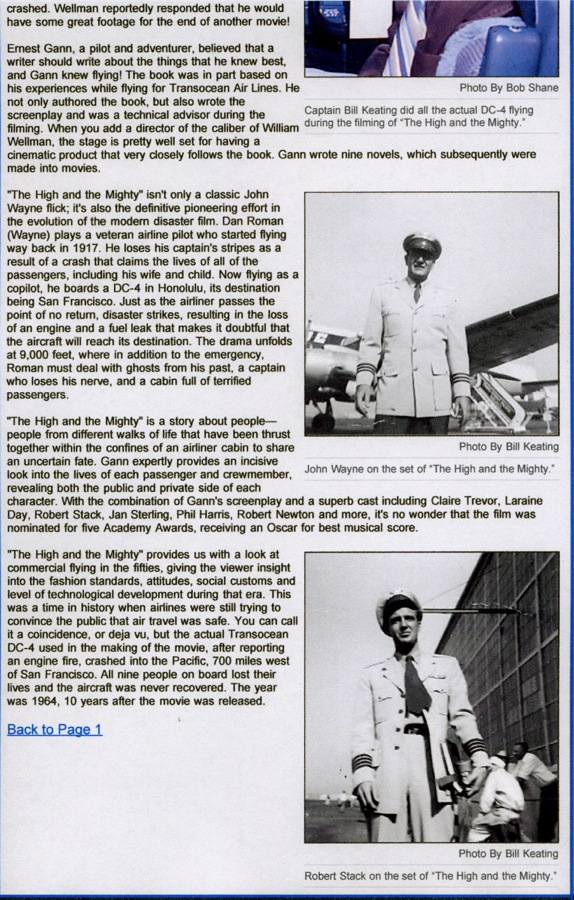
 To My World
To My World







